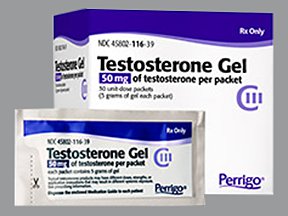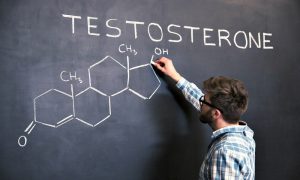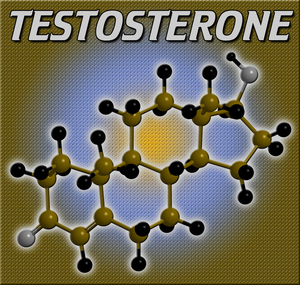Video Link: https://vimeo.com/293025713
Video Download: Click Here To Download Video
Video Stream: Click Here To Stream Video
Video Link: https://vimeo.com/293026576
Video Download: Click Here To Download Video
Video Stream: Click Here To Stream Video
Testosterone is more popular than ever in the United States. Though the hormone is widely known and recognized for its benefits to men with  Testosterone Deficiency, most people still have a lot of questions about the hormone. The goal of this article is to explain some lesser-known facts about Testosterone—How Testosterone is Made, Why Testosterone is Important, and more.
Testosterone Deficiency, most people still have a lot of questions about the hormone. The goal of this article is to explain some lesser-known facts about Testosterone—How Testosterone is Made, Why Testosterone is Important, and more.
Where is Testosterone Produced?
Most people know that Testosterone is produced by the Testicles, but did you know that Testosterone is also provided by other parts of the body as well? In addition to the Testicles, Testosterone is also secreted by the adrenal glands in men, and in both the ovaries and adrenal glands in women—That's right, women produce and require Testosterone as well. The release of Testosterone during the early phase of gestation triggers the development of primary sex characteristics.
How Does Testosterone Affect Physiological Function during Childhood?
Testosterone is vital in both sexes after a child is born. For example, Testosterone helps to modulate the manufacture of Red Blood Cells, as well as the distribution of body fat across the body. After puberty, increased Testosterone production in males contributes to their lower natural body fat percentage.
Did Our Historic Elders Accidentally Discover Testosterone?
Testosterone was not officially discovered by scientists until the 20th century, but there were signs that the Testicles were capable of rejuvenation.
For example, Pliny the Elder, a naturalist of the Roman Empire, wrote that the consumption of hyena testicles could heighten sexual desire and stimulation. Hyenas are notable for being among the mammals that produce the most Testosterone in the animal kingdom, so it's not surprising that such a remedy could provide such results.
Hyenas are notable for being among the mammals that produce the most Testosterone in the animal kingdom, so it's not surprising that such a remedy could provide such results.
How Have Scam Artists Abused the Concept of Testosterone in the Past?
It has been known for centuries, if not longer, that the Testes are the center of male virility and masculinity. There have been many to abuse this knowledge for profit. For example, in the 1920s, scam-artist John Brinkley abused this tacit knowledge to convince patients to have slices of goat testicles implanted into their scrotum, with the promise that it was a cure for many medical problems, and could enhance sexual desire and potency.
How Does Testosterone Impact Women?
Testosterone not only influences male sexual desire and function but that of women as well. Testosterone is the primary trigger for sex drive in women, as well as men, and feminine Testosterone Deficiency is associated with a lack of sexual desire, as well as uncomfortable and sexually unfilling sex. Testosterone encourages the release of lubricant and enhances the sensitivity of the feminine erogenous zones.
When Did Sex Hormones first Evolve in Animals?
The production Testosterone, Estrogen, and other Sex Hormones began early in the evolutionary history of animals. The first instance of an animal producing and utilizing sex hormones is speculated to be more than five hundred million years ago, among certain forms of invertebrate animals. Today, all vertebrate species evolved sex-specific hormones, the first of which was Estrogen. Testosterone is actually an evolutionary product of Estrogen.
How Much More Testosterone do Men Produce than Women?
The bodies of both men and women manufacture and release Testosterone, but the male body produces far more than its feminine counterpart. Men produce up to twenty times as much Testosterone than women, and this is why Testosterone Deficiency is much more noticeable among men than women. However, women can experience issues such as the increased risk of Osteoporosis and inhibited Sexual function, among other significant problems.
How and Why Do Testosterone Levels Fall as We Get Older?
Testosterone Production is mostly dependent upon age. From birth to puberty, boys don't produce that much Testosterone, but puberty is triggered by a massive increase in Testosterone Production. Testosterone Levels peak during  adolescence, then fall to an adult plateau, which continues until around the age of thirty, when Testosterone Production starts to drop. The decline begins to hasten further in the forties and fifties. By the time that a man reaches the age of eighty, over half of men have clinically significant Testosterone Deficiency.
adolescence, then fall to an adult plateau, which continues until around the age of thirty, when Testosterone Production starts to drop. The decline begins to hasten further in the forties and fifties. By the time that a man reaches the age of eighty, over half of men have clinically significant Testosterone Deficiency.
How Popular is Testosterone Today?
Since the turn of the century, the demand for Testosterone, and the prescription of Testosterone by medical professionals, has skyrocketed. For example, 1.3 million men used prescription Testosterone in 2010, and that number grew to 2.3 million patients over only three years.
Obesity is a Major Cause of Testosterone Deficiency
One reason that Low-T is more common today than ever is that more men are overweight or obese than ever. Adipose fat cells can take Testosterone and turn it into Estradiol, one of the primary Estrogen compounds.
The body uses Estrodiol feedback as a typical negative feedback mechanism for Testosterone, so when the body produces elevated levels of Estradiol, this is directly associated with a reduction in Testosterone output by the Testes and Adrenal Glands.
How Does Low Testosterone Promote Obesity?
Not only does Obesity lead to Low-T, but Testosterone Deficiency also makes it harder to get rid of body fat. This is because Testosterone is a potent metabolite, enhancing the body's ability to grow lean muscle. More lean muscle = More fat-burning power. Suppressed Testosterone production leads directly to smaller, weaker muscles which burn fewer calories.
How Safe is Testosterone?
As Testosterone becomes more accessible and more widely used, there has been an explosion of studies designed to evaluate the safety of Bio-Identical Testosterone Replacement Therapy. These studies have produced varying results, but based on an overall evaluation of the literature, there are significant benefits to Low-T Treatment for men with a legitimate need for Testosterone Treatment, and the risks are relatively low, except in the case of individual patients, such as those that have concurrent prostate or Testicular Cancer.
There is no substantial evidence thus far, which shows that Testosterone increases the risk of developing either of these cancers, but future research may alter this perspective. Early studies show an increased risk of certain cardiovascular conditions, but this appears to be the result of either too much Testosterone being produced, or the result of increased Estrogen Levels, which can be easily treated via Estrogen Blockers. The latest research shows that Testosterone Therapy when prescribed and used appropriately, is quite safe and has a low risk of side-effects.
Testosterone being produced, or the result of increased Estrogen Levels, which can be easily treated via Estrogen Blockers. The latest research shows that Testosterone Therapy when prescribed and used appropriately, is quite safe and has a low risk of side-effects.
When was Testosterone first Isolated in a Laboratory?
Testosterone was first discovered in 1935, though its existence had been hypothesized and recognized years before. Testosterone was isolated through a distillation process. Thousands of gallons of male urine were distilled to separate the proteins from urine itself. The first goal of scientists was to separate androsterone from the urine, which is a relative of Testosterone and is also a male sex hormone. After isolating Androsterone, researchers found and Isolated Testosterone.
When was Testosterone first Named?
The researchers that isolated Testosterone was from the Netherlands, and created the word, Testosterone, soon after discovering it. Testosterone literally means, Steroid of the Testes.
How Many Kinds of Anabolic Steroid Are There and Where Do They Come From?
To date, there are over thirty types of male steroids on the market. All of these steroids are produced in a laboratory, and work by copying active components of the molecular makeup of Testosterone. These steroids were and still are widely used by bodybuilders and athletes to obtain an illicit edge over their peers.
How Strong is the Connection Between Testosterone and Aggression?
Some studies have indicated that there is a connection between aggression and elevated Testosterone Levels, but there is insufficient research today to clarify the validity of this correlation.
Some studies even suggest that elevated Testosterone Levels can be associated with reduced aggression. The effect of sex hormones on psychological balance is complex, and further research will be necessary to learn the truth in all of its intricate detail.
How Does Testosterone Alter Behavior in Other Species?
Interestingly enough, there appears to be a strong connection between Testosterone and aggressive behavior in most animal species. This would lead one to believe that this would be true in human males as well, but at some point, the effect of Testosterone on aggression appears to have tapered off significantly. Testosterone may have different influences on behavior dependent upon age and physiological development.
For example, one piece of research found that twelve and thirteen-year-olds were more aggressive as a result of elevated Testosterone, but there was no such connection among boys that were fifteen and sixteen. This could mean that psychological development progresses between the ages of twelve and sixteen such that the influence of Testosterone upon behavior subsides in some ways.
Do All Species Produce Testosterone at the Same Time?
Every species appears to have its own timetable about the production of Testosterone. Among Humans, Testosterone is produced during gestation and puberty and beyond. Other species, however, produce Testosterone in different patterns. For example, rats don't begin to experience an influx of Testosterone until they have already left the womb, and experience no adolescent boost in the hormone.
Do Natural Testosterone Supplements Work?
As of yet, there is no evidence that products designed to increase Testosterone work homeopathically. For example, the now-famous Deer-Antler Spray has shown no steady benefit in the clinical trials. Perhaps someday, a Testosterone Supplement will be found to be both safe and effective. Still, today, Testosterone Therapy is the only means to achieve a sustained and clinically significant increase in Testosterone Production.
How Common is the Abuse or Mis-Prescription of Testosterone?
Testosterone Therapy is safe and effective for patients with a legitimate need. Still, the hormone is often prescribed without due diligence by the prescribing physician or is sold illegally on the black market.
For example, as of 2013, one in four men using Testosterone Treatments didn't even get their Testosterone Levels evaluated. For these patients and potential abusers, the risks associated with Testosterone Therapy increase significantly.
Only take Testosterone Therapy with the guidance of a Licensed and Board- Certified Hormone Doctor. If your doctor is willing to provide you with Testosterone without a prerequisite blood test, he or she is very likely putting your health at risk.
Certified Hormone Doctor. If your doctor is willing to provide you with Testosterone without a prerequisite blood test, he or she is very likely putting your health at risk.
Contact Us Today For A Free Consultation

- Is it Low T? - Video [Last Updated On: January 14th, 2025] [Originally Added On: November 2nd, 2012]
- Low T Help | Increase Testosterone | Is it Low T [Last Updated On: January 6th, 2018] [Originally Added On: November 27th, 2013]
- Is It Low T - Testosterone Hormone [Last Updated On: March 31st, 2025] [Originally Added On: November 27th, 2013]
- Is It Low T Quiz Was Written on Toilet Paper [Last Updated On: September 22nd, 2025] [Originally Added On: March 9th, 2014]
- Is It Low T Testosterone Hormone [Last Updated On: November 7th, 2020] [Originally Added On: May 11th, 2014]
- Does My Husband Have Low T? [Last Updated On: November 19th, 2020] [Originally Added On: November 12th, 2014]
- Testosterone Replacement Beneficial for Modern Men? [Last Updated On: March 16th, 2025] [Originally Added On: February 11th, 2020]
- Relationship Among Benign Prostatic Hyperplasia, High Testosterone, and Diabetes [Last Updated On: February 21st, 2024] [Originally Added On: May 27th, 2020]
- Testosterone Creams for Low Testosterone Treatment and Andropause [Last Updated On: May 6th, 2024] [Originally Added On: August 10th, 2020]
- Thirteen Reasons That You May be Losing Your Sex Drive [Last Updated On: May 11th, 2024] [Originally Added On: February 20th, 2021]
- Testosterone for Women: Is it an Option Worth Considering? [Last Updated On: May 18th, 2024] [Originally Added On: February 23rd, 2021]
- Testosterone cream and gel for supplementation treating hypogonadism [Last Updated On: March 16th, 2025] [Originally Added On: March 13th, 2021]
- Low T - My life was falling apart because I had low testosterone [Last Updated On: March 16th, 2025] [Originally Added On: April 25th, 2021]
- Ego Might Be Driving Men Towards Testosterone Injections, But it Really Does Improve Many Health Conditions [Last Updated On: September 17th, 2024] [Originally Added On: July 19th, 2021]
- Can Low Testosterone cause brain fog or other mental problems? [Last Updated On: October 16th, 2024] [Originally Added On: October 17th, 2022]
Word Count: 1693




















